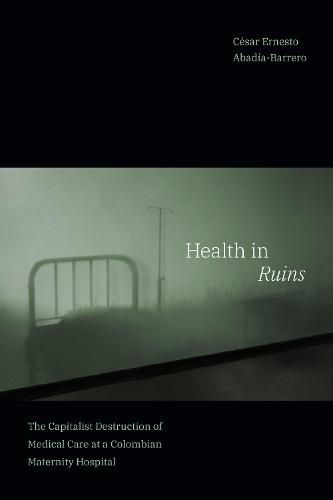Readings Newsletter
Become a Readings Member to make your shopping experience even easier.
Sign in or sign up for free!
You’re not far away from qualifying for FREE standard shipping within Australia
You’ve qualified for FREE standard shipping within Australia
The cart is loading…






In Health in Ruins Cesar Ernesto Abadia-Barrero chronicles the story of El Materno-Colombia’s oldest maternity and neonatal health center and teaching hospital-over several decades as it faced constant threats of government shutdown. Using team-based and collaborative ethnography to analyze the social life of neoliberal health policy, Abadia-Barrero details the everyday dynamics around teaching, learning, and working in health care before, during, and after privatization. He argues that health care privatization is not only about defunding public hospitals; it also ruins rich traditions of medical care by denying or destroying ways of practicing medicine that challenge Western medicine. Despite radical cuts in funding and a corrupt and malfunctioning privatized system, El Materno’s professors, staff, and students continued to find ways to provide innovative, high-quality, and noncommodified health care. By tracking the violences, conflicts, hopes, and uncertainties that characterized the struggles to keep El Materno open, Abadia-Barrero demonstrates that any study of medical care needs to be embedded in larger political histories.
$9.00 standard shipping within Australia
FREE standard shipping within Australia for orders over $100.00
Express & International shipping calculated at checkout
In Health in Ruins Cesar Ernesto Abadia-Barrero chronicles the story of El Materno-Colombia’s oldest maternity and neonatal health center and teaching hospital-over several decades as it faced constant threats of government shutdown. Using team-based and collaborative ethnography to analyze the social life of neoliberal health policy, Abadia-Barrero details the everyday dynamics around teaching, learning, and working in health care before, during, and after privatization. He argues that health care privatization is not only about defunding public hospitals; it also ruins rich traditions of medical care by denying or destroying ways of practicing medicine that challenge Western medicine. Despite radical cuts in funding and a corrupt and malfunctioning privatized system, El Materno’s professors, staff, and students continued to find ways to provide innovative, high-quality, and noncommodified health care. By tracking the violences, conflicts, hopes, and uncertainties that characterized the struggles to keep El Materno open, Abadia-Barrero demonstrates that any study of medical care needs to be embedded in larger political histories.